Bulent Karagez: ‘We encounter cancer more often, but mortality is falling due to new treatment’
A professor from Istanbul, world-renowned oncologist, talks about innovations in cancer treatment and unique cases in practice
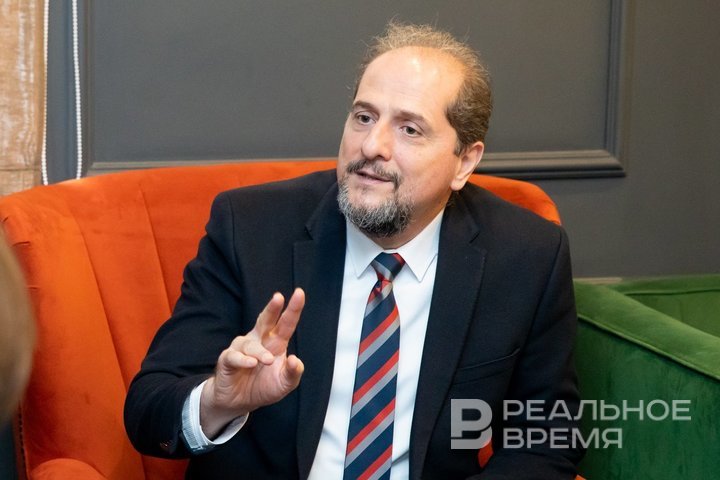
Last week, Kazan gathered oncologists from all over the world for the international conference Sigal Readings, dedicated to the 105th anniversary of Professor Moishe Segal, the founder of the Tatarstan School of Oncology. Russian and foreign experts discussed modern methods of cancer diagnosis and treatment. One of the key speakers of the forum — Bulent Karagez, a world-renowned doctor from the Turkish Anadolu Clinic. In an interview with Realnoe Vremya, a professor from Istanbul spoke about innovative therapies that save the lives of previously doomed patients, as well as how healthy people can prevent cancer or detect it as early as possible.
“A person has been alive for 5 years, although with classical treatment he would have died in a year”
Professor Karagez, you have come to Kazan to talk about innovations in cancer treatment. What are these innovations?
First of all, I would like to say that I am very glad that I am here in Kazan — you have a hospitable city. Naturally, I have come to tell you about the latest developments in cancer treatment. First of all, it concerns the treatment with natural drugs and the use of immunotherapy, which shows very good results.
I want to share my developments in the use of new drugs so that they can be used in Tatarstan, as they have proven their effectiveness. At the same time, I want to find out from my Kazan colleagues what methods they use. Maybe I can learn something for myself.
Is this the topic of your report at the Sigalov Readings Forum in Kazan?
Yes, that's right. But since this is a fairly broad topic, I will talk specifically about the treatment of stomach cancer on the forum.
How has the mortality and survival rate of cancer patients changed now, thanks to new treatment methods?
This applies to immunotherapy and targeted therapy, which are used in our clinic. These are the very innovations in cancer treatment.
We are seeing cancer much more often now than before, the detection rate of cancer has increased, and many more patients are coming.
But if we look at the cancer mortality statistics, we will see that these figures, on the contrary, are falling. The most important reason for this is the use of new treatment methods.
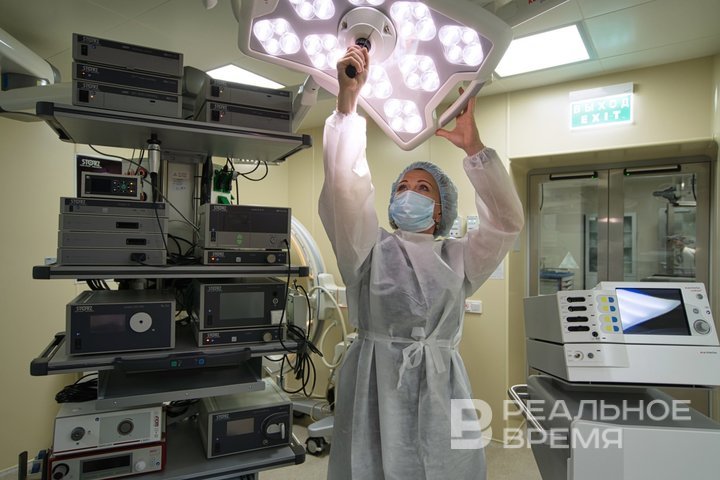
I'll give you an example: we have a patient with lung cancer, and a new treatment has been applied to him — molecular targeted therapy (molecular targeting therapy is treatment aimed at specific genes, proteins, or receptors of a tumor cell that promote cancer growth and survival). A person has been alive for five years, although at the same time with classical treatment, he would most likely have died in a year.
“Now patients come at a rather late stage of the disease”
What are the main problems in modern oncology that you would identify? How can they be solved, in your opinion?
We cannot completely cure cancer — this problem still persists. In addition, we need to work on how to prevent the occurrence of malignant neoplasms, that is, to work on the root causes of cancer, to prevent their occurrence.
Let's turn to cancer statistics: what indicators are alarming?
In fact, statistics may now show some erroneous results. This applies to the last 5 years, because during those years we had COVID-19.
During the pandemic, many could not come, be examined and detect cancer. Now patients come at a fairly late stage of the disease. It turns out that for this reason, the incidence statistics have increased slightly.
Your field includes breast cancer, colorectal cancer. How has the treatment of these diseases changed in recent years?
The use of immunotherapy in the treatment of patients with diagnosed colorectal cancer shows very good results. In bowel cancer, we generally use a multidisciplinary approach: chemotherapy, radiotherapy, and surgery. But if the patient has a positive MSI test (genetic examination for microsatellite instability (MSI) — a genetic condition of the cell characterised by an increased frequency of mutations in short repetitive DNA sequences known as microsatellites — ed.), then he does not need either chemotherapy, radiotherapy, or surgery. Only immunotherapy can be applied to them. In breast cancer, survival increases with the use of immunotherapy and targeted therapy.
Can you tell us about the unique cases in your practice?
Naturally, we have a lot of examples when we were able to prolong the lives of patients, I want to give one of them. The patient has stomach cancer, he was told that he had about a year to live. But he has been living for 6 years, leads a normal lifestyle and everything is fine with him. He even forgets that he has such a problem at all, and remembers about it only when he needs to come for treatment. This is all thanks to immunotherapy and targeted therapy.
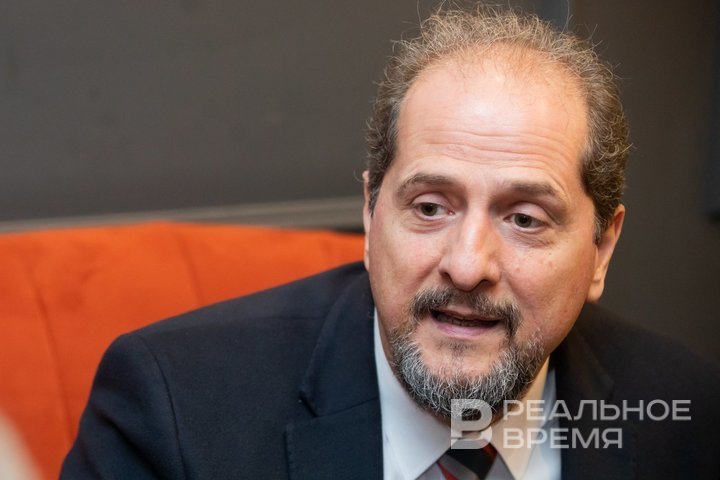
“Good treatment methods are used in Kazan”
You are a frequent guest at conferences and master classes in Kazan. Does this mean that our doctors need to learn a lot, or is it the opposite about the high level of our oncology school?
I came to share my experience, to tell the new things that I learned myself, and what we apply. But I also want to exchange opinions with my colleagues from Kazan, I know that good treatment methods are used here. That's why I didn't come to teach, but to exchange opinions and experiences, and I want to tell you how molecular therapy is used here.
I would like to know your opinion about gene therapy in the treatment of cancer. How far have oncologists progressed in this direction?
All this is still under study. I do not know how much progress Russia has made in gene therapy, but this area is widely studied in clinical research in the world.
We often hear about a new direction in oncology, “next-generation sequencing” (NGS, next—generation sequencing, a technology that allows you to quickly and accurately decode DNA and RNA sequences — editor's note). Do you use this in your clinic and why is it important?
Yes, we use NGS. The advantage of such studies is that we can look at many genes that are associated with cancer. Without this test, we will not be able to understand how to use immunotherapy and targeted therapy correctly.
After conducting this study, we choose a treatment method. And it is only with his help that we see that this medicine can really help the patient.
Do many patients from Russia and Tatarstan, in particular, come to the clinic?
Yes, quite a lot of patients come to us from Russia, including from your republic. They come for diagnostics, including for molecular biology studies. Some stay for treatment, but there are also those who go home, and we treat them together with our Kazan colleagues.
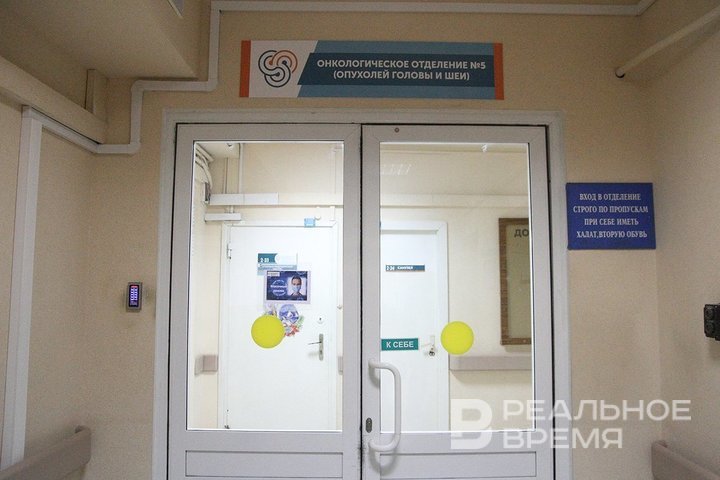
It turns out that patients undergo treatment in Kazan, and you treat them remotely?
We have a medical consultation where we determine the treatment plan for the patient. But since the patient, for some reason, for example, cannot stay in our clinic, he leaves for Kazan, and our Kazan colleagues and I exchange opinions and jointly treat the patient.
“If it turns out that the cancer vaccine works well, I will study this issue”
We often hear from the news that a cure for cancer has been found. Are there any truly revolutionary discoveries today that will save lives? For example, how antibiotics have changed medicine.
Unfortunately, there is currently no treatment that would cure a patient with cancer one hundred percent. There are medications that show good results, meaning they increase life expectancy and quality of life. But, as I said earlier, unfortunately, there are no drugs that will cure you completely.
What do you think about the cancer vaccines that have been developed in Russia? What are their prospects?
In many countries, work continues on the development of cancer vaccines. Unfortunately, I don't know what vaccines were created in Russia, so I can't say anything about them. After all, there are no indicators yet on how they affect.
If it turns out that the cancer vaccine works as well as immunotherapy, I will be happy to explore this issue.
Now we have a lot of debate about the effectiveness of vaccinations against human papillomavirus. Young girls believe that they can completely avoid cervical cancer by getting vaccinated against HPV. What do you think about this?
These vaccinations can really reduce the risk of cancer. But then they need to be done by both boys and girls. This will protect women from cervical cancer, and men from throat cancer. If you reduce the risk of this virus, the risk of cancer will decrease.
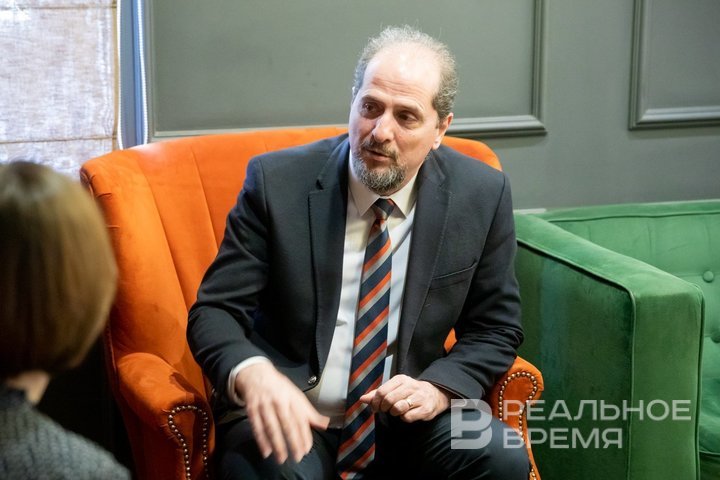
It is believed that half of all cancers can be prevented by lifestyle changes. Do you agree?
Among the causes of cancer, 50% are external factors and 50% are internal. For example, smoking can be attributed to external factors. If you quit cigarettes, the risk of cancer will immediately decrease by 20%, and if you don't smoke at all, then by 30%.
The same applies, for example, to obesity. By reducing excess weight, you can reduce the risk of cancer. Exercising also reduces the chance of getting sick. Excessive alcohol consumption, on the contrary, will increase your risks.
Even just adhering to these four rules can reduce the risks of cancer.
What would you recommend to healthy people: what do you need to know and do to prevent or detect cancer as early as possible?
First of all, this is what I have already said: do not smoke, abstain from excessive alcohol consumption, and adhere to a healthy diet. But at the same time, it is still necessary to conduct a check-up in a timely manner, that is, a complete examination and monitor your health status. For example, women should have regular mammograms and visit a gynecologist. Men also need to be tested. I can also recommend having a colonoscopy after the age of 40, even if there are no complaints. If there are any suspicious things, it is necessary to take this under control, if not, then you can undergo a study once every 3-5 years.